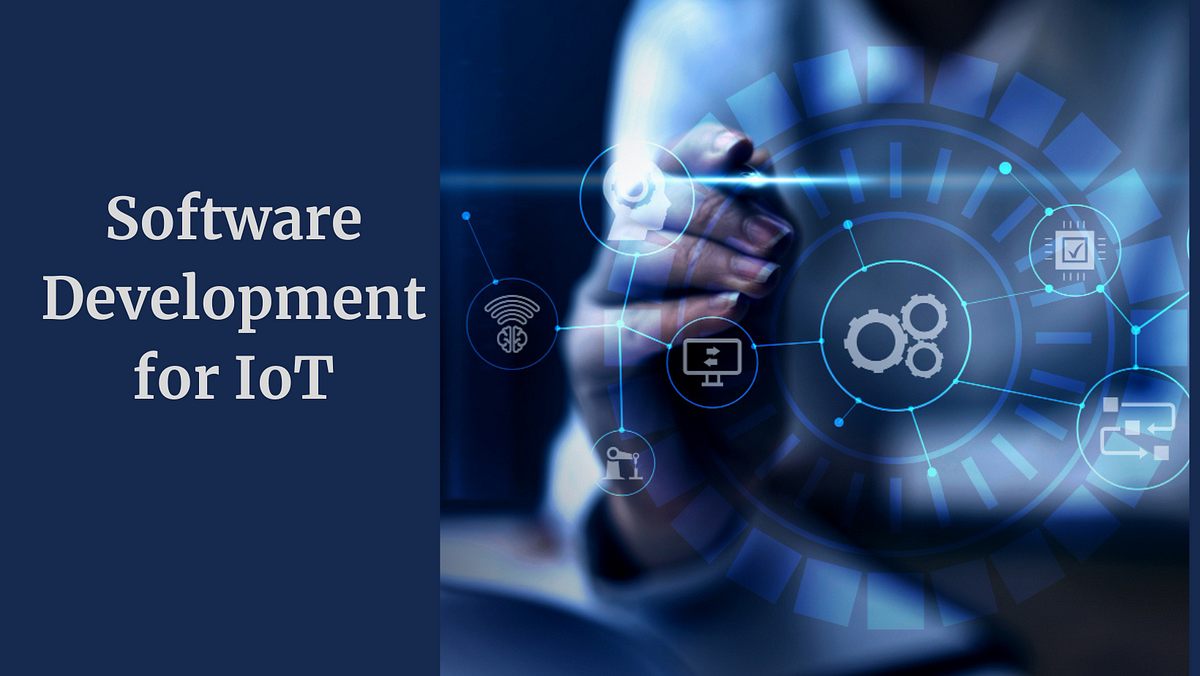As we all know, every industry market is changing, and customers are demanding more innovative and cost-effective products or services to address their problems. To meet these changing and increasing customer demands, enterprises have to implement best practices in their operations and production.
Now, imagine what happens if an enterprise often faces unexpected equipment failures and maintenance problems. It will definitely disrupt operations and increase costs. Additionally, the Enterprise will not be able to meet consumer demand, and it may be thrown out of the competition. The only thing that can help you avoid these problems is to focus more on understanding and adopting new technologies like IoT software development.
It is seen that IoT in software development is driving huge changes in enterprise operations. In very simple words IoT software development is a modern approach of enterprise software development to creat programs and applications that connect everyday devices like sensors and smart appliances to the Internet. This internet connection allows devices to exchange data with other devices. The goal is to make things work smarter, automate tasks, and provide useful information to help businesses run more efficiently and grow.
In this article, we will discuss the benefits and challenges of implementing IoT in software development for enterprise growth.
Benefits of IoT Software Development For Enterprises
Enterprise IoT brings many financial and operational benefits for businesses. These benefits directly impact the bottom line of any enterprise and help them to improve customer satisfaction and business growth. So, let’s discuss some of the benefits of IoT software development.
- Improvement in Operational Efficiency
As we all know, enterprises and businesses are all about how to operate. Many industry leaders believe implementation is more important than idea generation, and operational efficiency is very important for smooth implementation.
Here, IoT software helps enterprises work smartly by collecting data from connected devices. Enterprises can use these data to understand how things are working. They can find and solve the problems early that might disturb the operations process later;k. Thus the chances of operational disturbance can be reduced.
For example, a factory can use sensors on machines to predict early when a machine could break down. This early fault detection allows them to schedule repairs or replacements to avoid any unplanned downtime.
- Helps to Make Data-Driven Decisions
What makes an enterprise ahead of its competitors, I think, is the right decisions made at the right time. The decisions made with the reference of right and timely data are way more effective than decisions made with guts.
As we understand, IoT software can collect vast amounts of data about the entire Enterprise from connected devices. Now, the decision-maker can utilize this information to uncover different patterns, trends, and insights. This will help in making detailed decisions about operations, marketing, and product development.
For example, A clothing store can uses sensores to track foot staps of customers, so they can know where customers spend the most time. If they find that people loved the shoe section theb they can move shoe area to the front and can increase the sales.
- Supply Chain Optimization
The supply chain is like a backbone for any business or Enterprise. A strong supply chain ensures product availability, controls costs, and maintains overall customer satisfaction. It can be a competitive advantage for an enterprise.
IoT software plays an important role in supply chain optimization and enterprise visibility. The IoT sensors on products, trucks, and warehouses collect real-time data about location, temperature, and inventory levels. Enterprises can use this data to optimize routes, predict demand, and manage inventory. They can also predict the inventory demand to reduce wastage and stockouts.
For example, A food company can use IoT sensors in its warehouse and can connect to the IoT software so they can track the temperature of its refrigerated trucks to ensure product freshness and prevent spoilage.
- Better Customer Experience
In the end, It’s all about customer satisfaction. Enterprises always want to earn the trust of their customers and try to make them long-term consumers of their products. However, this will only be possible when the Enterprise knows its customers’ wants.
IoT software can collect consumer data through connected devices like smartphones, wearables, and smart home appliances. This data can give information about customers’ preferences, habits, and real-time behavior. With this information, enterprises can offer personalized products and services to customers and enhance overall customer satisfaction.
For example, many retail businesses have smart fitting rooms that use sensors to suggest clothes. These rooms also recommend clothes to customers based on their past purchases, creating a personalized shopping experience and making customers feel more special.
- Improve Mobility and Agility
Mobility means to allow employees to work anywhere and agility means the Enterprise can adapt to any market changes quickly. These two are very important for any enterprise to stay ahead of its competitors.
IoT software development can help to achieve both of these because it uses connected devices like sensors and machines to the Internet. This allows employees to access data from anywhere and on any device. Additionally, IoT software is easily scalable so that enterprises can adopt market changes quickly.
For example, a commercial building has IoT sensors to monitor energy consumption, occupancy levels, and environmental conditions. Now, the manager can access this data at any time and from any device. With this, he can make quick decisions to optimize energy, comfort, and maintenance.
Thus, all of these benefits can collaborate and help enterprises achieve efficiency and growth. Many big businesses are already leveraging the power of IoT software development to grow. A classic example is Amazon, which utilizes IoT, starting from smart warehouse management to delivery optimization.
If you think that Amazon is a big company and can go for IoT software development, but you can’t, Then you are wrong. You can easily develop IoT software for your Enterprise with the help of the best enterprise software development company; it will manage the entire development and IoT integration process for your business.
Anything can’t be only good good. There are always some challenges related to advanced technology implementation. Here are a few challenges of implementing IoT software development for your enterprises that you should be aware of.
Challenges of IoT Software Development For Enterprises
- Security: A primary challenge of IoT software is managing data security when it is being transformed from connected devices through the Internet. IoT software needs regular security checks and updates. Additionally, it’s important to follow robust security measures, like encryption and authentication, to protect it from any cyber attack or unauthorized logins.
- Data Management: IoT software generates a vast amount of data. Enterprises don’t need all of this data. So, it’s become challenging to filter the data, store, manage, and secure the important data so it can be easily accessed. For this, enterprises need to utilize analytics tools and develop the best data management strategies.
- Network Connectivity: The Internet is like fuel for IoT-integrated software; it can’t work without a proper internet connection. Many modern enterprises have factories and warehouses in remote areas where internet connectivity is difficult, making it challenging to integrate IoT.
- ROI: Implementing IoT requires a high initial cost because you need a good internet connection and costly equipment. Additionally, the cost of IoT-enabled software solutions is high. No doubt, all of these can be beneficial in the long term, but it is difficult to get an estimation of ROI in a short period of time.
- Maintenance: IoT software and equipment demand continuous updates and maintenance for security and smooth operations. This maintenance process is quite costly and time-consuming, making it challenging to scale IoT software according to your requirements.
These challenges make IoT integration quite difficult but not impossible. With the right approach and guidance, you can get the best IoT software solutions for your enterprises.
Suppose you are confused about whether you should go for IoT software development or not, and if you are confused between building an entire IoT system or integrating IoT in an existing software system. Then, you can leverage software consulting services, where industry experts and consultants can guide you with best practices and clear all your doubts.
In conclusion, we can say that IoT software development brings many benefits to enterprises looking to increase efficiency and growth. As with every advanced technology, it also has some challenges, but these can be overcome under the guidance of experts. So, overall, enterprises should try IoT-enabled software development with the best resources and guidance to leverage the power of IoT.



